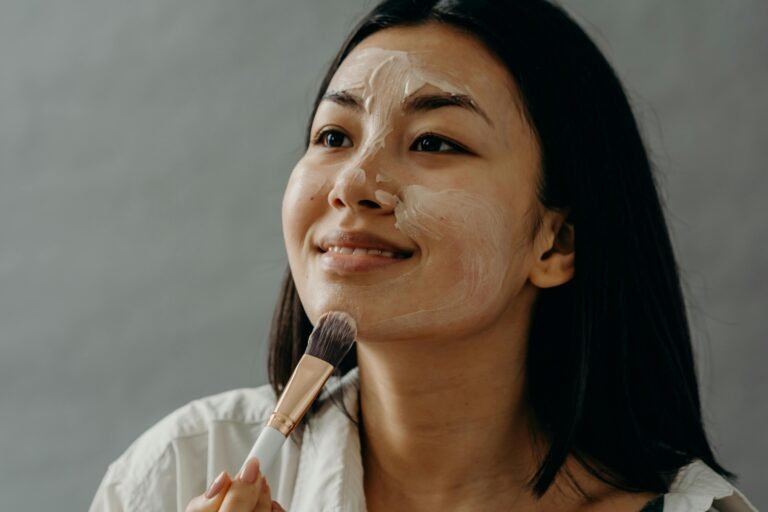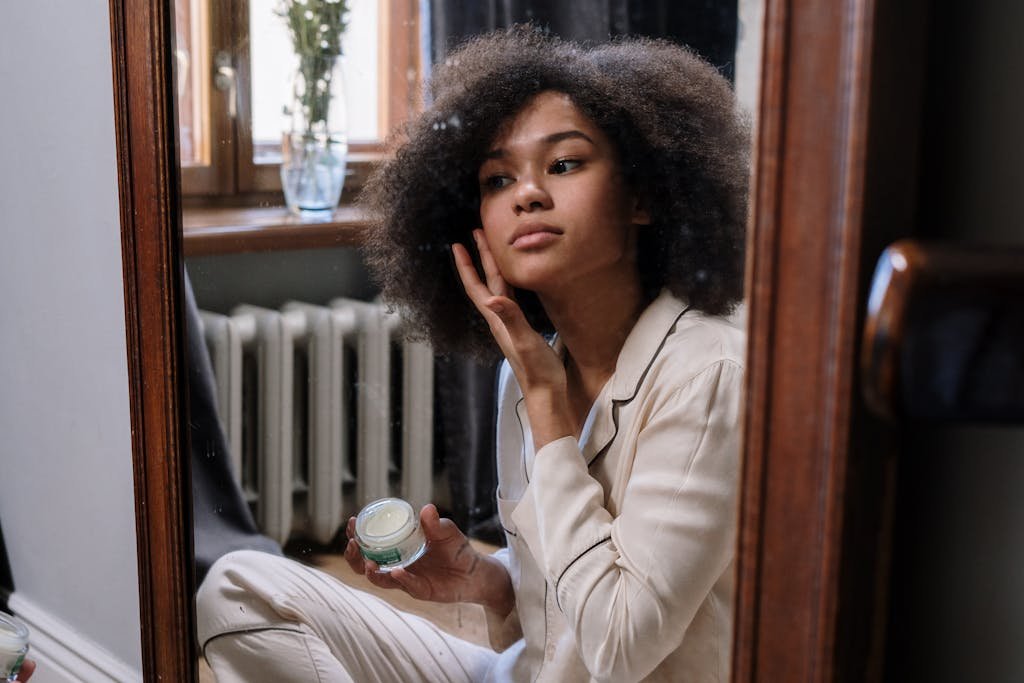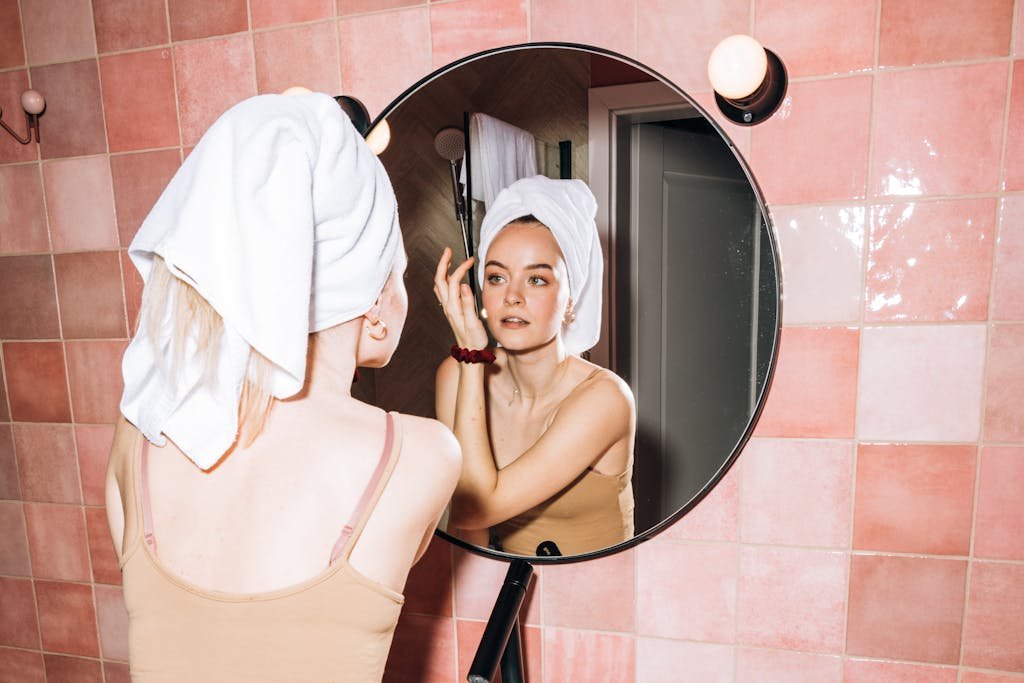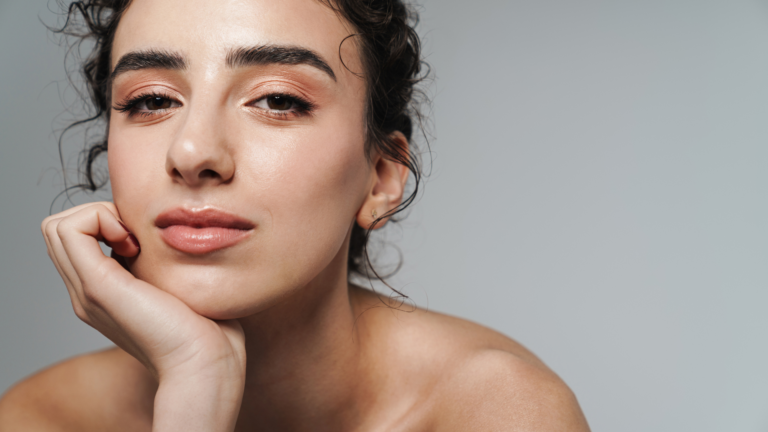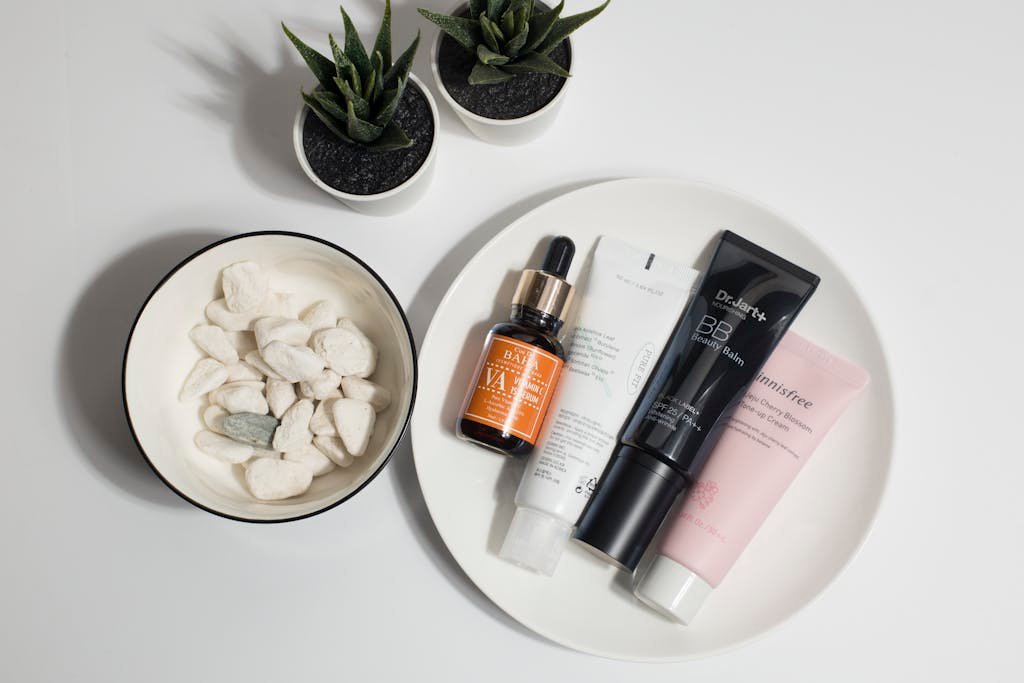The Truth About Parabens : Are They Bad For The Skin
This post may contain affiliate links. That means that if you click on a link and purchase something I recommend, I will receive a small commission at no extra cost to you. As an Amazon Associate, I earn from qualifying purchases. This helps keep my website up and running and is very appreciated. Thank you for your support! Disclaimer
Good morning, In today’s article, I want to talk about a topic that’s controversial and confusing to many people. It’s about a group of ingredients that some folks are really scared of. I thought it’s a good idea to get back on social media after taking a break, and now’s the time to talk about it. Let’s discuss parabens. Some groups really dislike them and want them gone. But I think it’s worth defending them. So let’s get started !!
If you don’t have time to read this post right now, why not save it for later?
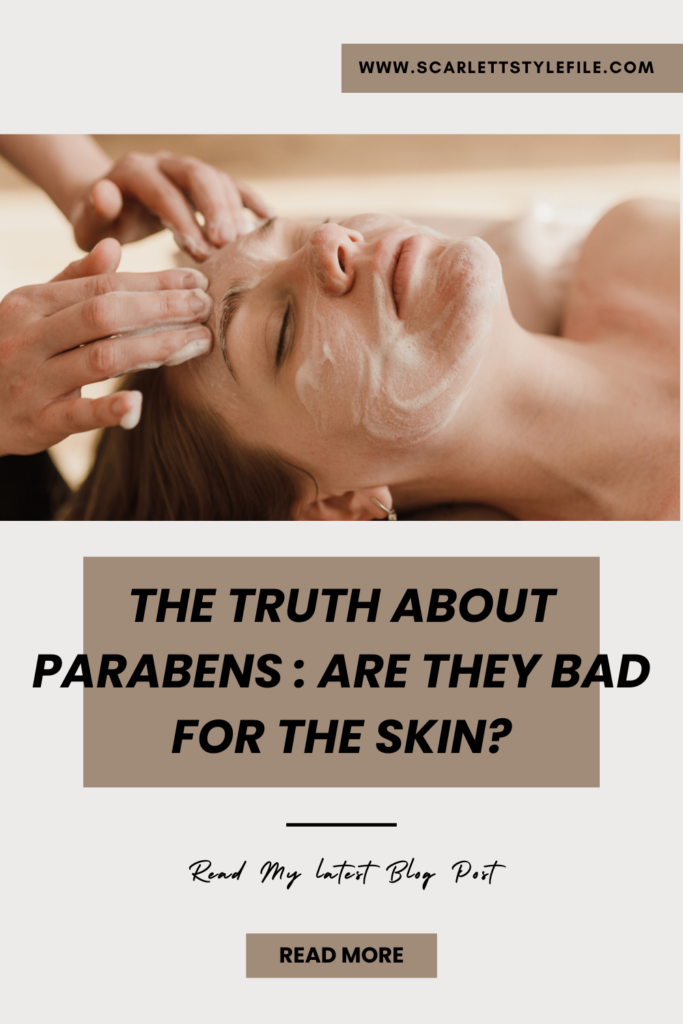
The Truth About Parabens : Are They Bad For The Skin
should parabens be feared :

Let’s start with something I see a lot on skincare forums: people worrying about parabens. They’re concerned about things like cancer and allergies, so they ask for recommendations for products without parabens. I see this stuff every day, and while I stay polite on the outside, inside I’m thinking, ‘No way!’
But when it comes to confidence, I stand firm. I might not care if you don’t like my outfit, but I take scientific facts seriously. Just a heads up, I went to Med School for four years and started a residency program before leaving for personal reasons. It doesn’t make me better than anyone else, but it does give me some insight.
Understanding scientific studies is tough. They’re not written for everyday people, and even with my background, I struggle with some of the statistics. Numbers can be twisted to fit different narratives, so you have to read studies very carefully. You need to know what kind of study it is—is it controlled? Is it double-blind? Is it just a survey? There’s a lot to consider, and not all studies are created equal.
So, before we dive into the studies on parabens, let’s talk about why people are so afraid of them in the first place.
what is a paraben?

Parabens are a type of preservative used in many products. There are lots of different kinds of parabens, and they’ve been around for about a hundred years. They were first made from a substance found in fruits and vegetables. You can’t really avoid them because they’re naturally present in many foods like bananas and edamame.
These preservatives are added to cosmetics to stop bacteria and fungi from growing in them. This helps the products last longer and be safer for you to use. Water-based products especially need them because water can attract microbes. It’s like a balance in life – too much or too little of something isn’t good. Just like how we need the right amount of sun and heat to stay healthy.
common types of parabens found in cosmetics
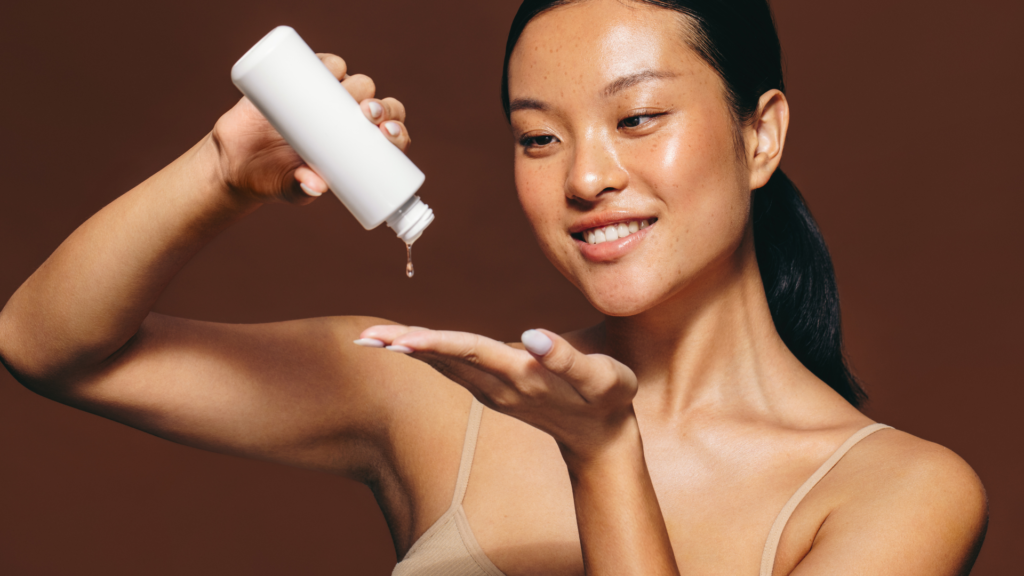
The most common types of parabens that we are going to be discussing in this article are methylparaben, ethylparaben, propylparaben, and butylparaben. These parabens are often used in cosmetics, but there are limits on how much can be used in a product, usually between 0.01 and a maximum of 362.96.
why did parabens get a bad reputation?
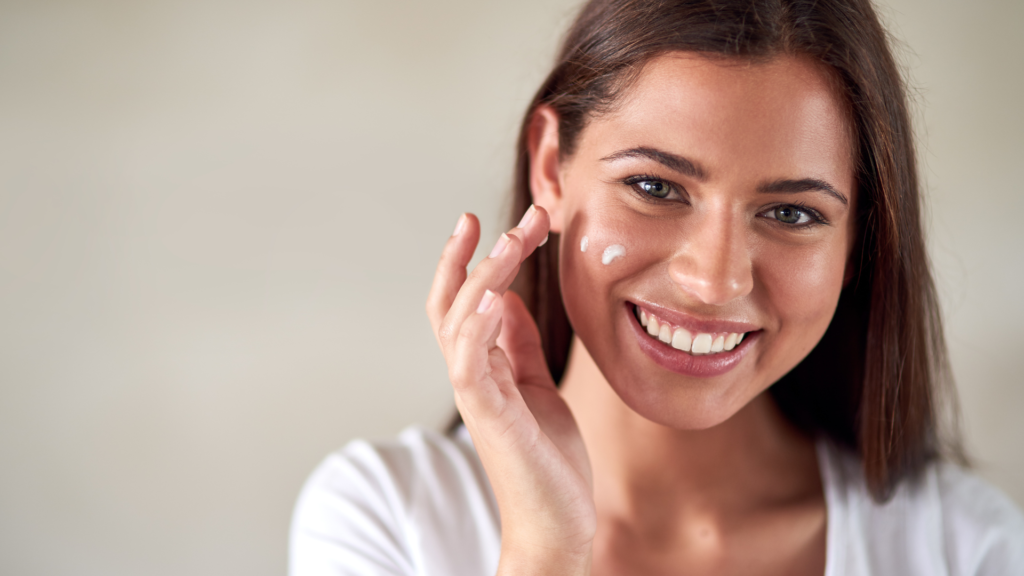
So, why do people think parabens are bad? Let’s rewind to 1998. Back then, a group did a study. They found that parabens can act like certain hormones in the body, like estrogen. This raised concerns that they might mess with our hormone levels. But when they tested it, they found that parabens were way weaker than our natural hormones. Also, they tested it by injecting high doses under rats’ skin, which isn’t how we use skincare products.
From what I know, rats and humans are quite different. When I use skincare products like glycolic acid, moisturizer, toner, essence, serum, or anything else, I’m putting them on my skin, not injecting them under it. Also, the amount of parabens in products is usually limited to 0.3 percent, but in the study, they used much higher concentrations. So, it’s like comparing apples to steaks—they’re just not the same thing at all.
In this study, I found something really interesting because I’m a nerd who enjoy numbers. Methylparabens are much weaker than estradiol in a lab setting—about 2.5 million times weaker. Then comes ethylparabens, followed by propylparabens, and butylparabens are about 10,000 times weaker than estradiol.
To put it simply, in a lab dish, the natural estrogen-like substances found in our food, called phytoestrogens, are actually 10,000 times stronger than the parabens studied. So, it seems like whole foods might need a Selena Gomez PR team because they might face criticism in the future, just like parabens. This applies to foods like tofu, edamame, and soy milk.
Also, a quick note, ethinyl estradiol is a major ingredient in birth control pills. Yep, you swallow it, you don’t rub it on your skin. It’s way stronger than butylparabens, which is a strong type of paraben, and you’re taking it in. But you don’t worry too much about it causing cancer, simply because studies show the risk is low.
Think about how many women take birth control pills every day. And it’s kind of funny that some people worry about parabens but happily take ethinyl estradiol in their birth control pills. Just something to think about.
In 2004, there was another study that looked at parabens in breast tissue. They found five types of parabens in the breast tissue of 19 out of 20 women with breast cancer. But here’s the thing: they only looked at women with breast cancer. They didn’t compare them to women without breast cancer. So, it’s like saying, ‘Let’s see if there’s water in breast cancer tissue,’ and surprise, surprise, all 20 women had water. But having water in breast cancer tissue doesn’t mean water causes breast cancer. Just because parabens were found in breast cancer tissue doesn’t necessarily mean they cause breast cancer.
It’s interesting that parabens can get into our tissues, but it doesn’t automatically mean they’re causing harm. However, this study sparked a lot of wrong ideas about parabens, making people think they’re bad. But actually, for the past hundred years, parabens have been great at keeping our cosmetic products safe. Some brands brag about not using parabens, but sometimes their products go bad quickly. I don’t know about you, but I’m not going to be buying $100 cream every two weeks to make sure that it stays as preserved as possible, it’s not happening.
I’m pretty fired up about this, and I think the media and the cosmetic industry are partly to blame for blowing things out of proportion just for a good story. They take a small thing and make it seem like a huge deal, even when it doesn’t make sense.
are parabens safe?
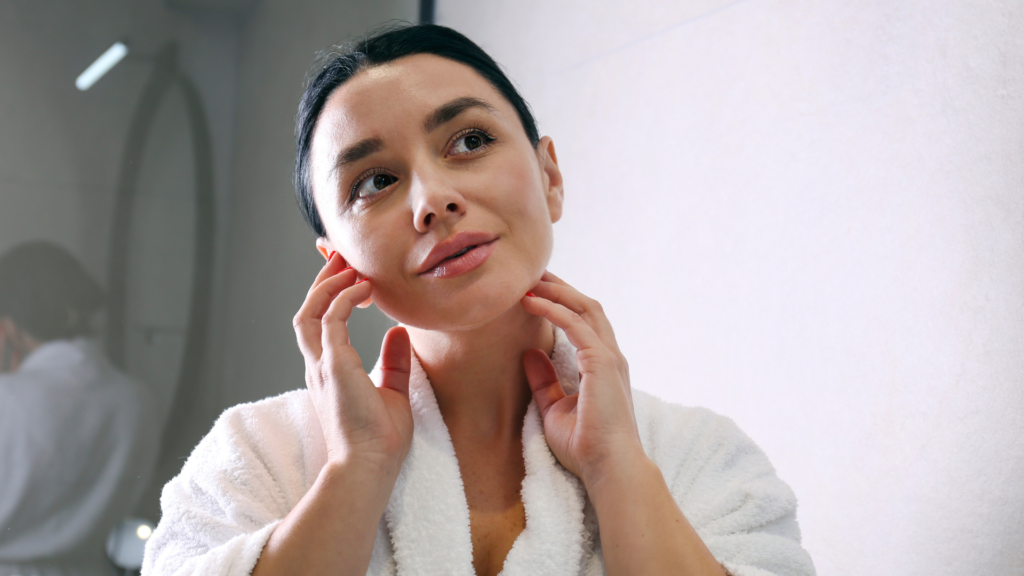
Since 2004, the Darber Group reevaluated in 2015, the Cosmetic Ingredient Review has looked into the safety of parabens in cosmetic products at least three times. They’ve all concluded that using parabens probably doesn’t cause cancer and is safe in products.
debunking Myths abut the usage of parabens

First off, there’s the myth that parabens are universally unsafe. However, the US FDA hasn’t made any definitive statements to that effect, nor have they reached a consensus on the matter. While the FDA’s regulatory standards may not be the strictest, other bodies like the European Commission of Scientific Committee on Consumer Safety, the Cancer Council in Australia, and the National Cancer Institute uphold rigorous standards. These organizations have all issued joint statements affirming the safety of parabens.
Now, the second myth is “If parabens are safe, why are they banned in the EU?” Well, here’s the kicker: they’re not entirely banned. Only five specific types of parabens face restrictions in the EU. Moreover, a handful of parabens, including Isopropyl, Isobutyl, Phenylbenzyl, and Pentalmethyl Ethyl Propyl and Butyl, are still permitted in cosmetic products in the EU, Japan, Australia, and Canada. Their usage is regulated, with a maximum concentration of 0.3 percent in cosmetic formulations. So, let’s put that myth to rest.
Other myths, “I have extremely sensitive skin, and I’m very allergic to very different ingredients, and so I don’t want any parabens in my products because I’m very sensitive.” Parabens have been shown to be sensitizing on open wounds and cuts, not so much on intact skin, but that being said, if you are very sensitive, you can actually be sensitive to many different other ingredients, such as even fragrances or certain alcohols or other kinds of preservatives like Phenoxyethanol. Like, it doesn’t mean that you’re just sensitive to parabens, but it’s easier to have a name that you hold on to that you say, ‘I don’t want any of this,’ without knowing the full story.
And finally, The “well, if there is any question around parabens, I would just rather avoid it, live a simpler life” argument. Sure but think about it this way: every day when you leave home, there’s a chance of getting into a car accident, slipping on a banana peel, or tripping over a rock. These things could happen, but you don’t let fear stop you from going out, right? Similarly, having parabens in your cream shouldn’t stop you from using it.
my personal stand on parabens:
Okay, I might seem a bit contradictory here, but hear me out. I’m a small business owner, just starting up, and my dream is to create my own skincare line with my partner in the future. I’ve always been open about this with you. So, will my skincare products have parabens in them at first? No, they won’t. Why? Because I don’t have a lot of money to invest in making them, and I’m not willing to risk my family’s financial security by using parabens.
But when I see big brands like Estee Lauder, L’Oreal, or Procter and Gamble using parabens in their products, I feel relieved. Why? Because I hope one day they’ll use their resources to educate people about parabens and show they’re not as bad as some think. This could pave the way for smaller businesses like mine to use parabens without worrying about going broke.
So, personally, I won’t use parabens in my products because it’s too risky for me financially. But I won’t advertise my products as “paraben-free” either. It’s purely a financial decision to protect myself and my family .
The Bottom Line
So, that’s what I think about parabens ! I hope this article helped you understand better.
It’s important to realize that how you look at things matters, and scientific studies aren’t like casual reading in a beauty magazine. You need to read them carefully, with a pen and paper handy, wearing your glasses, highlighting important points, jotting down facts, and asking questions.
If you don’t question what you read my friend then you might not get the whole picture. So Always question things.
Again , I hope this article helped you learn something new. If it did, then it was a success for me.
Feel free to leave any questions or feedback in the comments. I truly value my readers’ input.


